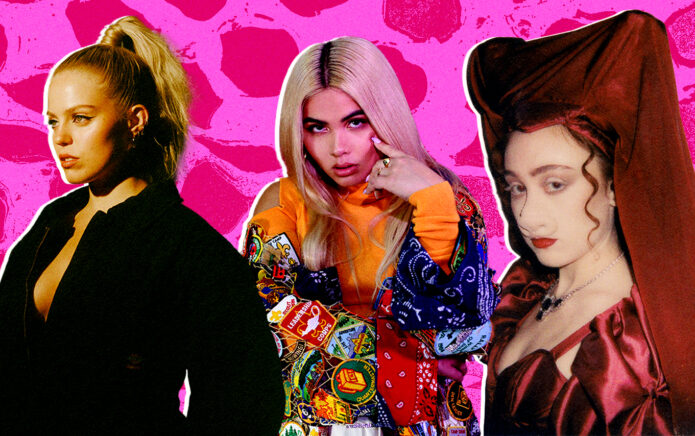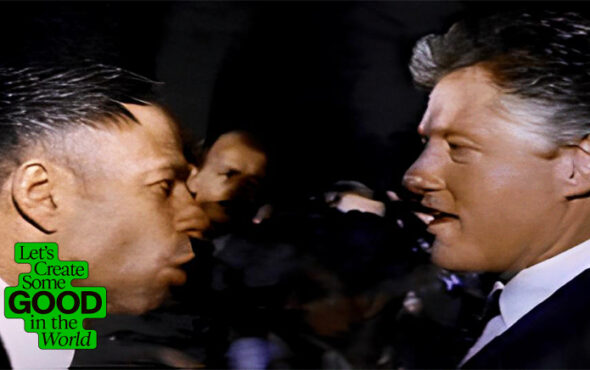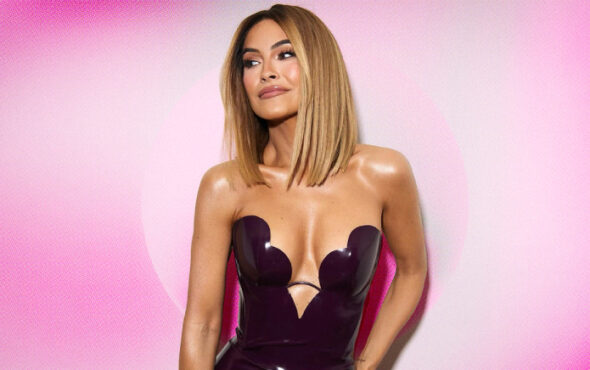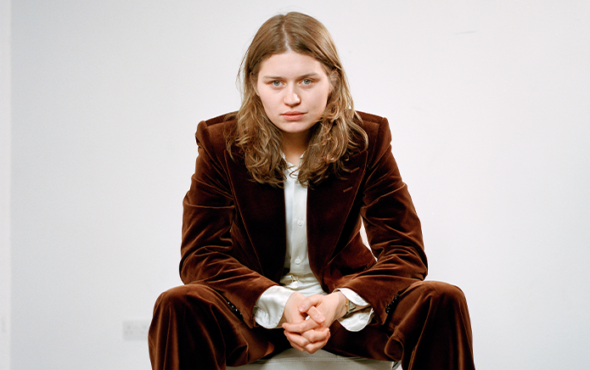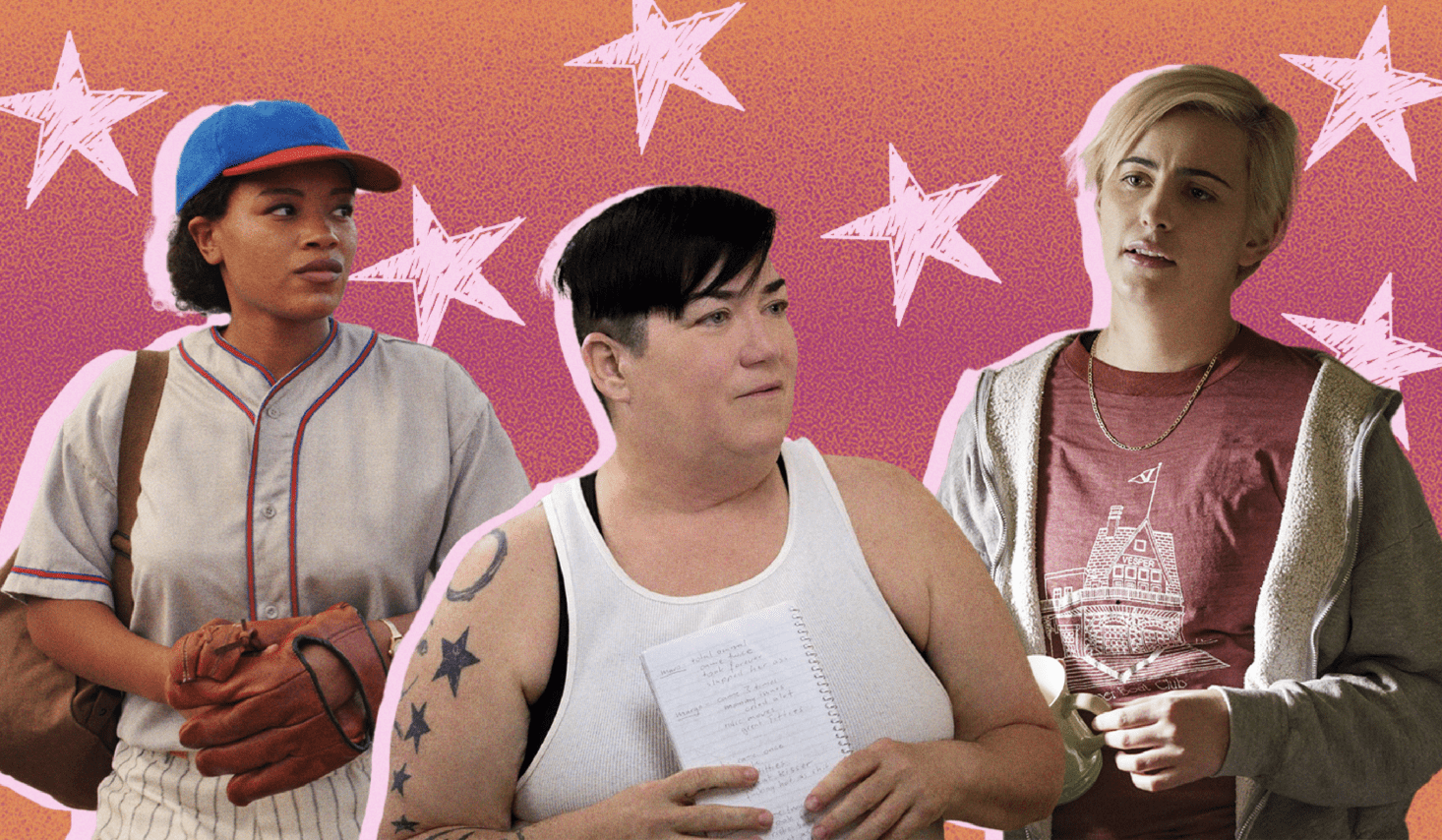
Butch representation is important, but it’s often missing in popular culture. Growing up, I was aware of the stereotypical ideas of lesbian masculinity, like short haircuts, big boots, and leather jackets. But the lesbians in the media I watched, on the rare occasion I saw any at all, were never actually butch.
It seems that there is an anxiety around being stereotypical, so butches have been allowed to disappear from popular media. The problem is that butch identities can often be viewed as a reductive stereotype, rather than a reflection of real lived experiences.
The first time I saw a butch lesbian on television, I was watching Orange is the New Black on Netflix as a teenager. In the show, Big Boo (Lea Delaria) initially struck me as the ‘stereotypical’ butch lesbian. A convict, she is loud, brash, and more than a little intimidating to her fellow inmates. However, throughout the show Boo is revealed to be more than just a caricature of lesbian masculinity. She is competitive, funny and fiercely protective. Boo was the first character on TV to show me that there was more to being butch than a stereotype. Throughout the seasons her story is revealed, she becomes a whole and complex person. Being butch is a part of her identity, but it isn’t all she is. As a young lesbian, it felt amazing to see the ways that being butch shaped Boo as a character, without being all she was.
Another TV show which handles butch masculinity beautifully, without giving in to stereotype, is the L word: Generation Q. In the final season of the show, Carrie (Rosie O’Donnell) becomes an almost parental figure to younger masculine lesbian Finley ( Jacqueline Toboni). Carrie has none of the intimidation or bravado of Boo in Orange is the New Black. Her role in trying to help and guide Finley, as well as Finley’s role in trying to help Carrie, is a deeply touching depiction of the cross-generational ties which exist among butch lesbians.
Carrie also dates another butch lesbian in season three, named Misty, who she meets at a bowling alley. At first she is nervous, hesitant, exhibiting none of the forward bravado often associated with butch lesbians. ‘Butch for Butch’ relationships are almost never portrayed in the media, and while the representation was small, it was moving to see, especially when paired with the show’s depiction of Carrie’s vulnerability and anxiety.
However, the butch representation that I have found the most moving is in A League of Their Own. A League of Their Own depicts many masculine lesbians with various life experiences. The show also handles the differences experienced by masculine lesbians across different ethnic and racial identities, something which is almost never seen in popular media.
The most beautiful moment for me is when Max (Chanté Adams) is handed a suit by Uncle Bert (Lea Robinson). Uncle Bert is a trans masculine character who takes in his niece as she figures out her gender expression and LGBTQ+ identity. This beautifully depicts the relationship between trans masculinity and lesbian communities in America in the 1940s. While Max decides to wear the suit ‘her way’, her uncle is her biggest advocate. He supports Max in finding a gender expression she feels comfortable with.
The most vital thing about all these shows is that they give representation to butch and masculine lesbian identities, without reducing their characters to one-dimensional caricatures. Without visible representation, being butch becomes a reductive stereotype, a whisper in school halls and public life. “You don’t want to be that type of lesbian.”
But butch lesbians exist, and there is more to being butch than harsh masculinity. These narratives allow for butch lesbian stories to come to life without erasing their characters’ masculinity. The stereotypes of butch masculinity can be suffocating; they don’t allow for authentic expression, or an understanding of the ways in which being butch isn’t just one thing.
Representation is vital in increasing understanding and empathy, and these shows demonstrate the ways that butch lesbians are more than a stereotype.
Niamh is an ambassador for Just Like Us, the LGBT+ young people’s charity. If you’re LGBT+, age 18-25 and living in the UK, you can volunteer for the Ambassador Programme here.
